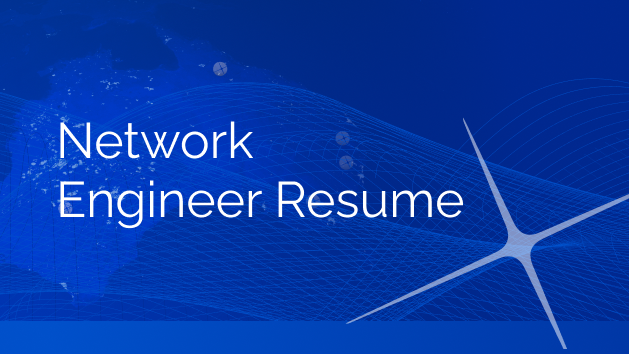Navigating the competitive landscape of the technology sector requires a resume that stands out, especially for a network engineer. In this article, we will guide you through crafting a compelling Network Engineer resume, tailored to the Australian job market, with a focus on Sydney, Melbourne, Brisbane, Canberra, and Perth. We will also highlight why Ignite is your go-to technology and IT recruitment agency for finding the best jobs and talent in these cities. Understanding the Role of a Network Engineer Before diving into the resume specifics, it's crucial to understand what employers look for in a Network Engineer. This role typically involves designing, implementing, and maintaining the network infrastructure of an organization. Key skills include problem-solving, in-depth knowledge of networking protocols, and experience with network hardware and software. Crafting Your Resume 1. Start with a Strong Profile Statement Begin your resume with a clear, concise profile statement. This should be a brief paragraph that highlights your key skills, experience, and what you bring to the role. For instance: "Detail-oriented Network Engineer with over 5 years of experience in designing and maintaining robust network infrastructures. Proven track record in enhancing system performance and reliability." 2. Detail Your Work Experience List your work experience in reverse chronological order. Focus on achievements and responsibilities that align with the Network Engineer role. Use bullet points to make it easy to read and quantify your achievements where possible. Example: Led a team in designing a scalable network infrastructure for a multinational company, resulting in a 30% improvement in system efficiency. Managed network security, reducing security breaches by 25%. 3. Highlight Your Education and Certifications Include your formal education, such as a degree in Computer Science or related fields. Additionally, list any relevant certifications like CCNA, CCNP, or CompTIA Network+. 4. Showcase Your Skills and Technologies Create a section for technical skills. List skills relevant to network engineering such as routing and switching, network security, WAN/LAN, and cloud computing. 5. Add Personal Projects or Volunteer Work If you have worked on personal projects or volunteered in roles relevant to network engineering, include them. This shows initiative and a passion for the field. 6. Tailor Your Resume Customize your resume for each job application. Highlight the experience and skills that are most relevant to the specific role and company you are applying to. Leveraging Ignite for Your Career Growth When you're ready to take your Network Engineer career to the next level, Ignite is your ideal partner. As a leading technology and IT recruitment agency across Sydney, Melbourne, Brisbane, Canberra, and Perth, Ignite offers unparalleled access to top-tier job opportunities and talent. For Job Seekers Ignite understands the unique demands of the IT sector in Australia. By choosing Ignite, you gain access to a network of prestigious companies seeking skilled professionals like you. Their expert recruiters provide personalized support, ensuring your resume reaches the right employers. For Businesses If you are a business looking for top-notch Network Engineers, Ignite has a pool of pre-vetted, skilled candidates. Their deep understanding of the IT landscape allows them to match you with candidates who not only have the right skills but also fit your company culture. A well-crafted Network Engineer resume is your ticket to exciting job opportunities in the dynamic world of IT. Remember to focus on clarity, relevance, and achievements. For those seeking to elevate their career or looking for the best talent in the tech industry, Ignite is your trusted partner in Sydney, Melbourne, Brisbane, Canberra, and Perth. Craft your future with Ignite, where opportunities meet potential.
Read MoreThe ever-evolving world of business demands professionals who can gather, analyse, and interpret data to shape strategic decisions. This is where the role of a business analyst comes into play. As companies in Australia continue to recognise the importance of this role, the demand for skilled business analysts is steadily on the rise. So, how can you ensure that your resume stands out in this competitive landscape? Let's delve into the art and science behind creating the perfect business analyst resume. Understand the Role Before you begin to pen down your credentials, it's imperative to have a deep understanding of what a business analyst does. In essence, a business analyst acts as a bridge between stakeholders and IT teams, ensuring that business needs are met through technological solutions. Start with a Captivating Summary Your resume should immediately communicate your proficiency. Begin with a concise yet compelling summary that encapsulates your expertise and achievements. It should be a brief paragraph that paints a clear picture of who you are and what you bring to the table. For example: Seasoned Business Analyst with over seven years of experience in data-driven decision-making, project management, and stakeholder communications. Proven track record of optimising business operations and driving profitability in the financial and tech sectors. Highlight Relevant Skills Given the multidimensional nature of a business analyst role, it's essential to outline a range of skills, both technical and soft. Some core skills to consider include: Data Analysis Project Management Stakeholder Communication Requirement Gathering & Documentation Technical Proficiency (SQL, Python, etc.) Problem-Solving Change Management Showcase Achievements, Not Just Responsibilities While it's essential to list your previous roles and responsibilities, what truly makes a business analyst resume stand out are tangible achievements. Quantify your contributions wherever possible. Did you increase efficiency by a certain percentage? Did you lead a team that saved the company a substantial amount of money? These are the metrics that potential employers look for. Tailor Your Resume for Each Application One-size-fits-all doesn't apply when crafting a resume. Each company has its unique requirements, culture, and values. Take the time to customise your resume to align with the specific role you're applying for. This might seem tedious, but it can significantly improve your chances of landing an interview. Seek Professional Assistance Sometimes, having a third-party perspective can make all the difference. This is where Ignite steps in. Recognised as the recruitment agency of choice, Ignite has been instrumental in connecting job seekers with their dream roles. Likewise, businesses seeking top-tier talent have repeatedly turned to Ignite for their recruitment needs. Their in-depth understanding of the Australian job market ensures that both businesses and job seekers find the perfect match. Keep the Resume Updated The business world is dynamic, and so are your achievements. Ensure that your resume is regularly updated to reflect new skills, experiences, and milestones. This proactive approach ensures you're always ready to seize new opportunities that come your way. Formatting and Readability A resume that's easy on the eyes is as crucial as its content. Keep these points in mind: Use a clean layout with clear section headers. Opt for a professional font like Arial or Calibri. Limit the use of jargon and keep sentences concise. Given the diverse audience in Australia, ensure cultural sensitivity in your language and examples. Crafting the perfect business analyst resume might seem challenging, but with the right approach and mindset, it's an achievable task. Remember, your resume is a reflection of your professional journey, so take the time to make it shine. And if you ever feel stuck, remember that agencies like Ignite are always there to guide you through the intricate labyrinth of the job market, ensuring that both businesses and job seekers find the best fit.
Read More
